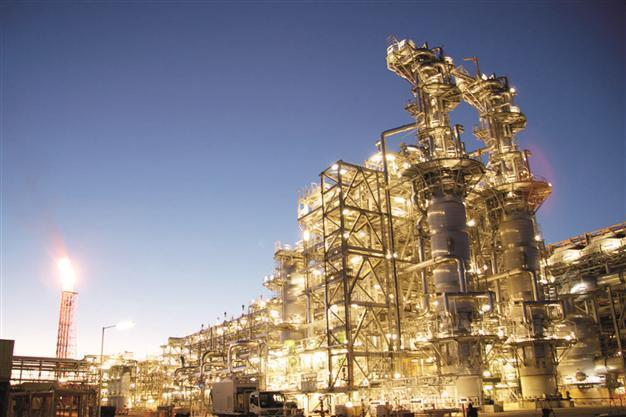Turkey, Japan sign $1.7 billion gas-to-liquids project with Turkmenistan
OWADAN-DEPE, Turkmenistan - Reuters

Turkmenistan, holder of the world’s fourth-largest natural gas reserves, signed a $1.7 billion deal with a Turkish-Japanese consortium on Aug. 26 to build a gas-to-liquids plant as part of its strategy to maximize revenues from its gas riches.
The signing ceremony was overseen by autocratic Turkmen President Gurbanguly Berdymukhamedov, who enjoys sweeping powers in his Central Asian nation of 5.5 million people.
“This is the first gas processing facility in the world which will employ a high-end technology to process natural gas into gasoline,” he said at a lavish ceremony in a white hangar decorated with crystal-and-gold chandeliers set up in a desert area near the capital Ashgabat.
The project will be implemented by Japan’s Kawasaki Heavy Industries and Turkey’s Rönesans Endüstri Tesisleri.
“It will produce here annually 600,000 tons of gasoline with octane rating of 92. The cost of the project is estimated at $1.7 billion,” Berdymukhamedov said to rapturous applause of the local diplomatic corps and his government.
The plant will process annually 1.785 billion cubic meters of natural gas, Berdymukhamedov said.
“The oil and gas sector is one of the main elements of our economy and today as demand for natural gas and its derivatives is growing that is why we participating in such international projects,” he added.
Japan Bank for International Cooperation will finance 85 percent of the cost of the project and Turkmenistan’s state gas company Turkmengas the rest, a Turkmen official present at the ceremony told Reuters.
It is planned to launch the plant in April 2018.
“The plant in Turkmenistan is extremely important to us,” chief executive Bjerne Clausen said in a statement.
This was “because it is the first large scale project in the world where we can showcase how our technology can help a nation with huge natural gas reserves monetize their natural resources by diversifying beyond conventional gas markets into transportation fuels.”
Turkmenistan, a secretive country which neighbors Iran and Afghanistan, has invested billions of dollars in recent years in projects aimed at diversifying its economy away from its current heavy reliance on natural gas production.
It has enjoyed economic growth of above 10 percent a year since the launch of a gas pipeline to China in late 2009. China, the world’s largest energy consumer, has fast supplanted Russia as the main buyer of Turkmen natural gas.
Last week, Japan’s Mitsubishi Corp. and Turkey’s Gap Insaat laid the foundation for a $1.3 billion plant to produce carbamide from natural gas in Turkmenistan, another diversification project.
Berdymukhamedov in June also concluded two large-scale agreements with South Korea’s LG International Corp and Hyundai Engineering to build two plants worth a total of $4 billion to process gas into liquids and other products.
It will be the first large facility to use new conversion technology by Haldor Topsoe, the Danish company said in a statement.
 Turkmenistan, holder of the world’s fourth-largest natural gas reserves, signed a $1.7 billion deal with a Turkish-Japanese consortium on Aug. 26 to build a gas-to-liquids plant as part of its strategy to maximize revenues from its gas riches.
Turkmenistan, holder of the world’s fourth-largest natural gas reserves, signed a $1.7 billion deal with a Turkish-Japanese consortium on Aug. 26 to build a gas-to-liquids plant as part of its strategy to maximize revenues from its gas riches.